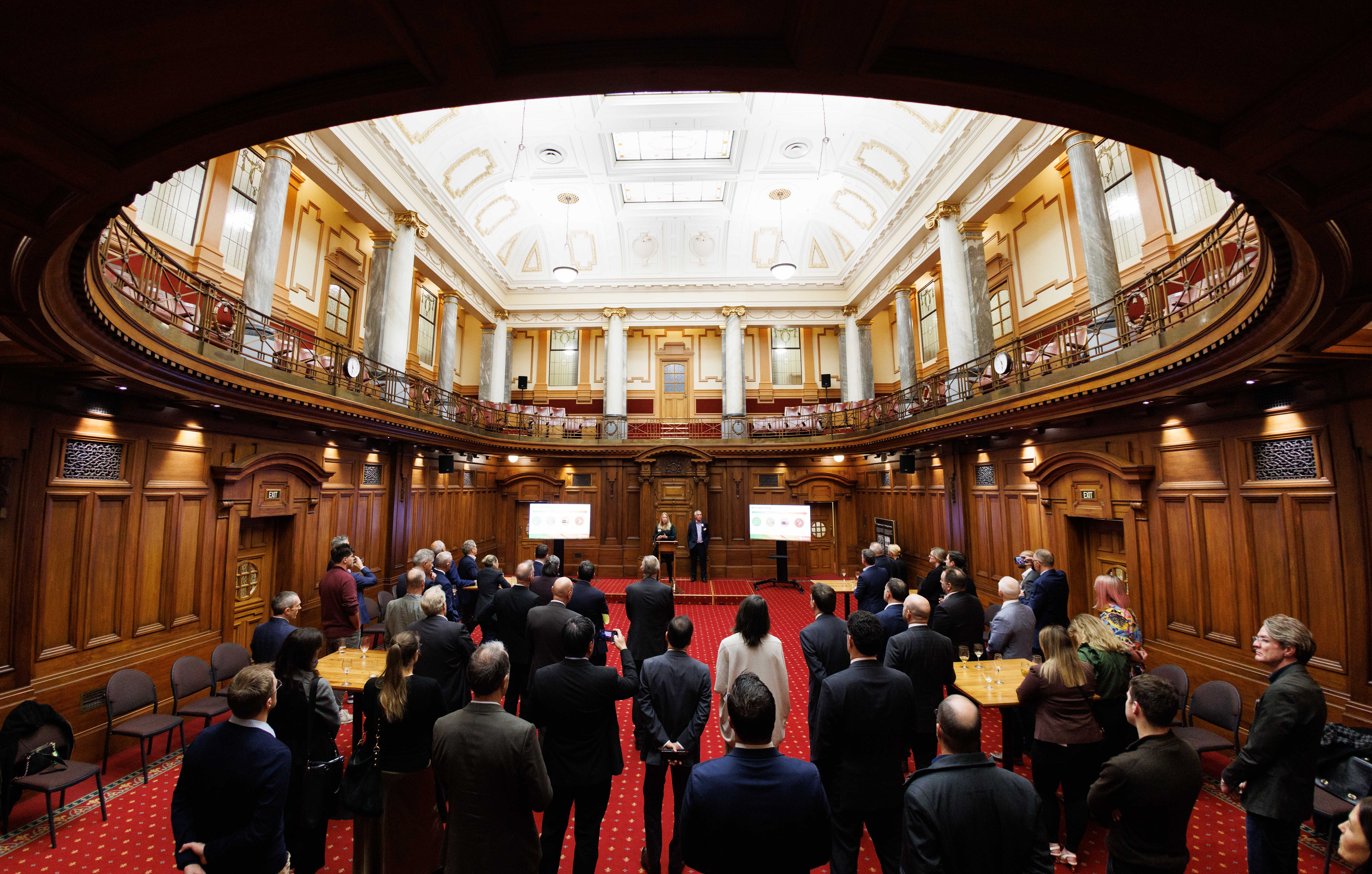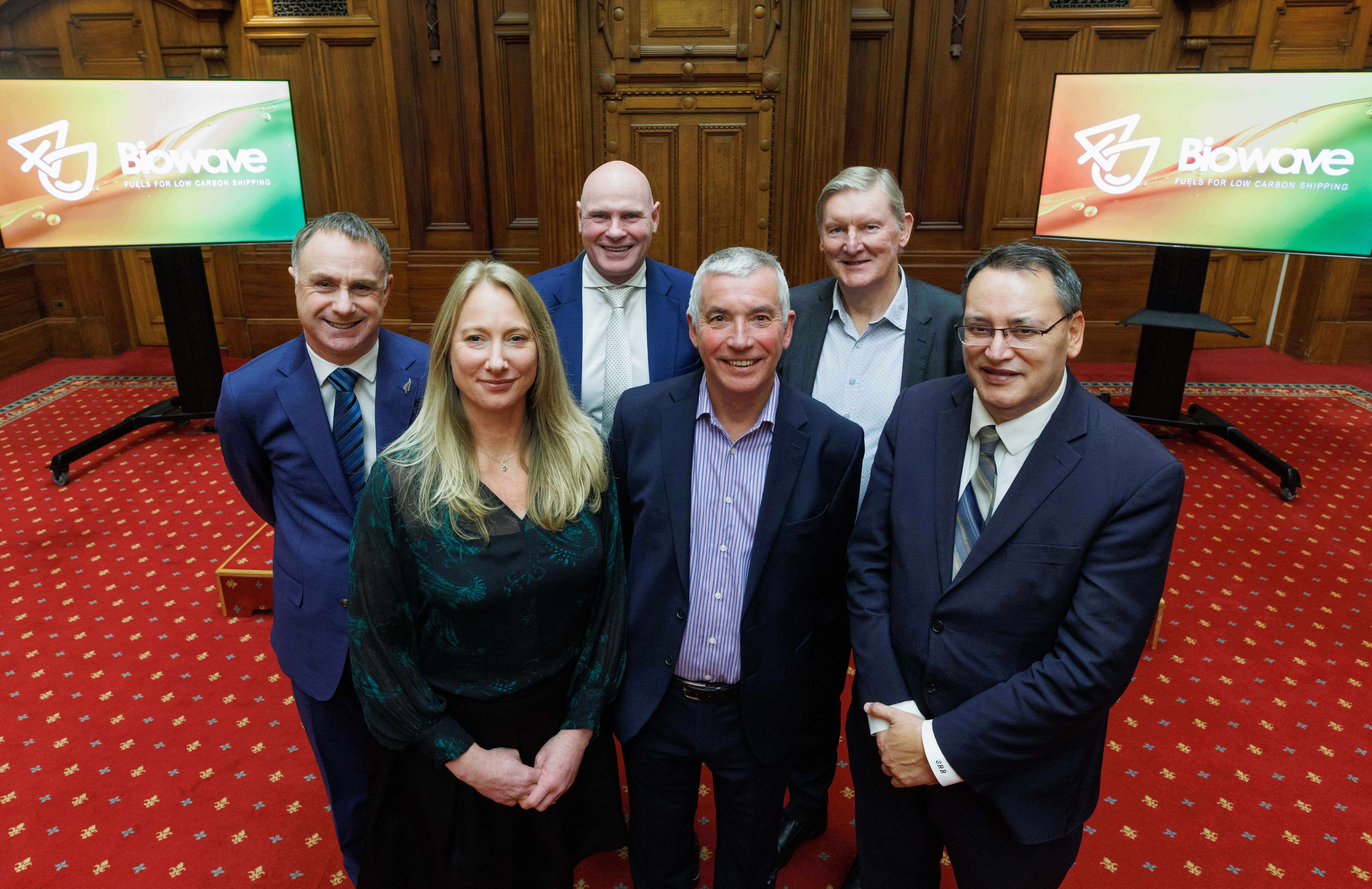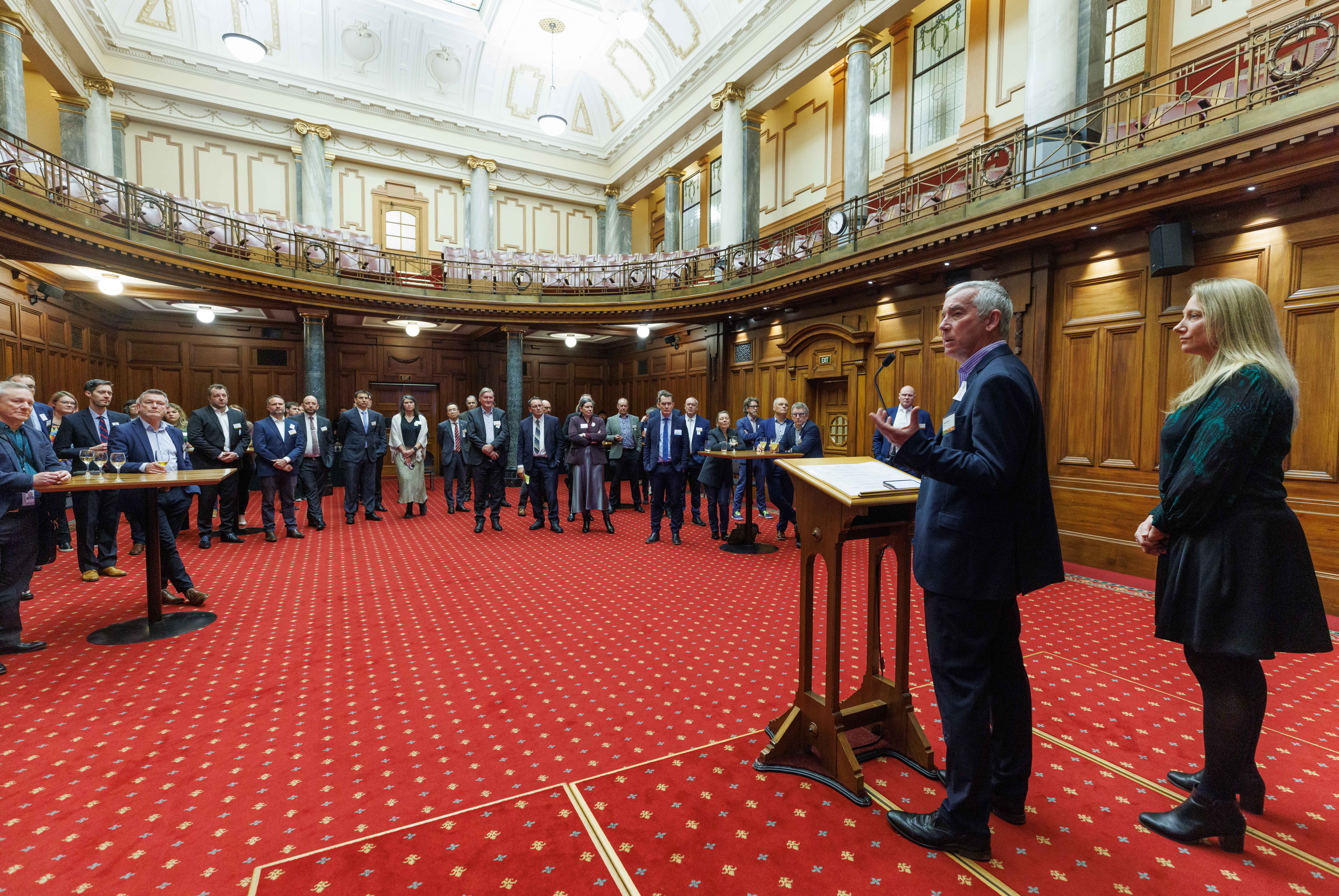Biofuel innovation set to make waves in marine shipping

14 August 2025
Biofuel technology that promises to help reduce the marine shipping industry’s carbon footprint is a step closer, with the launch of a company set up to lead its commercialisation.
Start-up venture Biowave, launched in Wellington on August 13, will focus on attracting private investors to help commercialise the technology – which converts wood into biofuel that can be used as a drop-in replacement for fossil-based marine heavy fuel oil.
Developed by the Bioeconomy Science Institute, this innovation produces a biofuel that blends with existing marine fuel oil, aimed to use existing portside and on-board infrastructure and to meet the existing marine fuel specifications.
Biowave is a spin-out company from the Bioeconomy Science Institute, with two staff – Integrated Bioenergy portfolio leader Dr Paul Bennett and innovation manager Amanda Davies – its co-founders.
Paul says the biofuel technology is a promising solution to reducing the shipping industry’s carbon footprint. “With the global shipping sector responsible for around three percent of annual CO2 emissions, the need for sustainable alternatives has never been more urgent.
“We are committed to driving down biofuel costs and accelerating clean energy innovations for the maritime sector. Major exporters are increasingly concerned about the carbon emissions linked to their products, with market access becoming a real risk,” he says.
“The technology has the potential to make a substantial contribution to the maritime industry’s decarbonisation goals.”
Shipping is an essential component of global trade, moving 80 percent of the world’s goods. For New Zealand, 99 percent of international trade depends on maritime routes, with shipping enabling nearly 45 percent of the country’s gross domestic profit. “As demand for shipping increases, the sector’s carbon footprint is on track to rise, potentially accounting for up to 13 percent of global emissions in the coming decades if no action is taken,” Paul says.
Fuel testing of a 20 percent Biowave blend has excited industry partners and could represent a product suitable for entry in the marine fuel market. Scale-up production and engine testing will be required to confirm market acceptance.
“The maritime industry is actively seeking solutions, and we’ve seen significant interest in Biowave from key stakeholders across the supply chain, including shipping companies, energy providers, ports and product exporters,” Amanda says.
“This technology offers a cost-competitive, sustainable solution for New Zealand’s economy and could be scaled globally. With strong market validation and a clear path to market, Biowave is set to make a lasting impact on New Zealand’s economy and the maritime industry to meet 2050 climate commitments.”
The Scion Group’s leadership in this space is reinforced by its participation in the KiwiNet Commercialisation Partner Network, which aims to drive the commercial success of research innovations in New Zealand.


Additional information
Benefits for New Zealand’s economy and environment
The commercialisation of sustainable marine biofuel technology could deliver significant environmental and economic benefits to New Zealand. Onshore production of biofuels would help the country meet its greenhouse gas reduction targets, reduce the carbon intensity of exports and safeguard market access for the $70 billion of New Zealand’s exports that rely on shipping. The development of biofuel production plants in regions such as Northland, the East Coast and the Central North Island would also stimulate local economies and create jobs, particularly in areas with strong forestry operations.
By leveraging its abundant forestry resources, New Zealand has the potential to reduce its shipping emissions by 2050 through the widespread deployment of small-scale conversion plants situated between forests and ports. This scalable model not only addresses the domestic market but could be exported to other forestry-rich regions globally, such as North America and Europe, amplifying its impact on the global shipping industry.
Market opportunity and industry interest
As regulatory bodies such as the International Maritime Organisation set aggressive decarbonisation targets, such as cutting industry emissions to zero by 2050, there is growing demand for sustainable alternatives to fossil fuels. Experts predict that by 2030, global demand for carbon-neutral marine fuels could reach 17 million tonnes. That’s equivalent to 30-40% of expected global biofuel production capacity in 2030, just for the shipping sector.
Despite this, biofuels currently make up less than 0.1% of the fuels used in shipping, highlighting a significant gap in supply and a ripe opportunity for new market entrants. Scion estimates that producing 200,000 tonnes of biofuel initially presents a $600 million manufacturing opportunity for New Zealand.
New Zealand exporters such as Zespri are among those keen to investigate low-emissions shipping as a critical part of carbon reduction for Kiwi exporters who need to protect market access. “We support investment in biofuel supply production in New Zealand,” says Zespri chief supply chain officer Tim Mackle.
“New Zealand has a unique opportunity to drive this work and lead pilots and trials, which will require setting up the right regulatory framework and solid demand. Already used widely in aviation, biofuel is an important step in the decarbonisation of international shipping, as it is a “drop in fuel” that can be used in conventional vessels, requires no engine modification and can reduce carbon emissions up to 20 percent (depending on the blend used).
Global ports such as Singapore and Rotterdam have already embraced biofuels, with increasing numbers of shipping companies – including CMA-CMG, Maersk and Hapag-Lloyd – committing to net-zero targets by 2050.
Port of Tauranga CEO Leonard Sampson said biofuels would have a significant role in the future supply chain. “Port of Tauranga is committed to decarbonising its business as well as supporting customers on their decarbonisation journey. We want to ensure our customers have all the options they need as shipping transitions to a lower emissions future.”
